Home> Company News> Timken Bearing Showdown: Timken vs. SKF vs. NSK vs. NTN vs. FAG
- AddressToh Guan Centre, 31/F,69 Toh Guan Rd E, Singapore 608609
- Factory AddressToh Guan Centre, 31/F,69 Toh Guan Rd E, Singapore 608609
- Worktime9:00-18:00
- Phone(Working Time)0065-31591578
- Phone(Nonworking Time)0065-31591578
- Fax0065-31591339
Timken Bearing Showdown: Timken vs. SKF vs. NSK vs. NTN vs. FAG
2024-05-27 11:02:18Introduction
Overview of the Significance of Bearings in Various Industries
Bearings are critical components in a wide range of industries, playing a vital role in facilitating smooth and efficient rotational or linear motion. They are essential for reducing friction between moving parts, supporting loads, and enhancing the performance and lifespan of machinery. Industries such as automotive, aerospace, manufacturing, and heavy machinery heavily rely on bearings to ensure optimal operation and reliability. Without bearings, the efficiency of many mechanical systems would be drastically reduced, leading to increased wear and tear, higher maintenance costs, and potential operational failures.
Introduction to the Focus of the Article
This article aims to provide a comprehensive comparison of Timken bearings with other leading bearing brands, namely SKF, NSK, NTN, and FAG. Each of these brands has established a strong reputation in the industry for their high-quality products and innovative solutions. By examining the unique features, technological advancements, and applications of these brands, we aim to highlight the strengths and potential limitations of Timken bearings relative to their competitors.
Timken is renowned for its durable and reliable bearing solutions, particularly in high-stress environments. As a leader in the bearing industry, Timken's products are widely used in various sectors due to their superior engineering and performance capabilities. However, understanding how Timken bearings stack up against other top brands like SKF, NSK, NTN, and FAG is crucial for making informed decisions regarding bearing selection and maintenance.
In this showdown, we will delve into the technical specifications, application suitability, and overall performance of these bearing brands, providing valuable insights for industry professionals and engineers. readers will have a clearer understanding of which bearing brand may be best suited for their specific needs and applications, particularly focusing on the unique attributes of Timken bearings.

Timken vs. SKF: A Comparative Analysis
Comparison of Timken and SKF Bearings in Terms of Design, Performance, and Applications
When comparing Timken bearings to SKF bearings, several factors come into play, including design, performance, and application suitability. Timken bearings are renowned for their tapered roller bearing design, which is optimized for handling both radial and axial loads. This makes them ideal for heavy-duty applications where high durability and load-bearing capacity are essential. Timken's design focuses on reducing friction and wear, thereby extending the lifespan of the bearings even under challenging conditions.
On the other hand, SKF offers a diverse range of bearing designs, including deep groove ball bearings, spherical roller bearings, and cylindrical roller bearings. SKF is particularly noted for its innovative self-aligning bearing technology, which helps accommodate misalignment and reduce stress on the bearing. This design feature makes SKF bearings highly suitable for applications where alignment issues are common.
Performance-wise, both brands excel but in slightly different areas. Timken bearings are praised for their robust performance in high-load and high-stress environments, such as automotive axles, construction machinery, and industrial gearboxes. The use of high-quality materials and advanced heat treatment processes ensures that Timken bearings can withstand extreme conditions without compromising performance.
SKF bearings, however, are known for their exceptional precision and efficiency in reducing friction and energy consumption. This makes them an excellent choice for applications where energy efficiency and smooth operation are critical, such as in electric motors, pumps, and conveyors. SKF's focus on reducing operating temperatures and extending maintenance intervals also contributes to their high performance in various industries.
Analysis of the Strengths and Weaknesses of Each Brand
|
Brand |
Strengths |
Weaknesses |
|
Timken |
Ability to handle heavy loads and harsh environments, effective tapered roller bearings, extensive product range, commitment to innovation |
Potential over-specification for applications not requiring high load capacities, potentially higher costs |
|
SKF |
Broad product range, focus on energy efficiency and precision engineering, friction and wear minimization, self-aligning feature |
May not offer same load-bearing capacity as Timken bearings, limiting use in extremely heavy-duty applications |
Discussion on Which Brand is More Suitable for Specific Industries or Applications
When deciding between Timken and SKF bearings, the choice largely depends on the specific requirements of the application. For industries such as automotive, construction, and heavy machinery, where high load capacity and durability are paramount, Timken bearings are often the preferred choice. Their ability to perform under extreme conditions makes them ideal for these demanding environments.
In contrast, for applications in the electrical, food and beverage, and textile industries, where precision, energy efficiency, and low noise are critical, SKF bearings are typically more suitable. Their innovative designs help reduce maintenance requirements and improve overall operational efficiency, making them a cost-effective solution for these applications.
In summary, both Timken and SKF bearings offer distinct advantages, and the choice between them should be based on the specific needs of the application. By understanding the unique strengths and weaknesses of each brand, engineers and maintenance professionals can make informed decisions that optimize performance and cost-efficiency.
Timken vs. NSK: A Comparative Analysis
Comparison of Timken and NSK Bearings in Terms of Quality, Reliability, and Innovation
When it comes to the world of bearings, both Timken and NSK are industry leaders renowned for their quality, reliability, and innovation. Timken bearings are well-known for their robustness, particularly in applications that require heavy load-bearing capacities and high durability. The brand's focus on tapered roller bearings ensures superior performance in harsh and demanding environments, making them a popular choice in industries like automotive, aerospace, and heavy machinery.
On the other hand, NSK is celebrated for its precision engineering and advanced technologies, which contribute to the high quality and reliability of their bearings. NSK bearings are designed with a strong emphasis on reducing friction and increasing efficiency, making them highly suitable for applications that demand precision and smooth operation, such as in robotics, medical devices, and high-speed machinery.
Evaluation of the Features and Technologies Offered by Each Brand
Timken offers several unique features and technological advancements that set their bearings apart. For example, Timken's use of high-quality steel and advanced heat-treatment processes enhances the durability and load-bearing capabilities of their bearings. Additionally, Timken's proprietary surface coatings and lubrication technologies help reduce friction and wear, thereby extending the service life of their bearings. Their tapered roller bearings, in particular, are designed to handle both radial and axial loads effectively, providing superior performance in a wide range of applications.
In contrast, NSK focuses on innovative technologies that improve bearing efficiency and reduce energy consumption. One of NSK's standout features is their self-aligning bearings, which can automatically correct misalignments, reducing stress and wear on the bearing. NSK also utilizes advanced materials and manufacturing processes to produce bearings with exceptional precision and low noise levels. Their high-speed ball bearings are particularly noted for their smooth operation and long service life, making them ideal for applications where precision and reliability are critical.
Discussion on the Preferred Choice for Different Types of Machinery or Equipment
Choosing between Timken and NSK bearings largely depends on the specific requirements of the machinery or equipment in question. For heavy-duty applications such as in construction machinery, automotive differentials, or industrial gearboxes, Timken bearings are often the preferred choice due to their ability to handle heavy loads and endure harsh operating conditions. The robust design and high load capacity of Timken bearings ensure reliable performance and longevity, even in the most demanding environments.
Conversely, for applications that require high precision, low friction, and smooth operation, NSK bearings are typically more suitable. Industries such as robotics, medical devices, and high-speed machinery benefit greatly from NSK's advanced engineering and innovative technologies. The ability of NSK bearings to operate with minimal noise and vibration, coupled with their self-aligning capabilities, makes them an excellent choice for applications where precision and efficiency are paramount.
In summary, both Timken and NSK offer high-quality bearings with distinct advantages. Timken bearings excel in heavy-duty applications requiring durability and high load capacities, while NSK bearings are ideal for precision applications that demand smooth, efficient operation. Understanding the unique features and strengths of each brand enables engineers and maintenance professionals to select the best bearing for their specific needs, ensuring optimal performance and reliability.

Timken vs. NTN: A Comparative Analysis
Comparison of Timken and NTN Bearings in Terms of Durability, Efficiency, and Cost-Effectiveness
When comparing Timken bearings and NTN bearings, it is essential to consider their respective strengths in durability, efficiency, and cost-effectiveness. Timken is renowned for its robust and durable bearings, especially in applications that demand high load capacities and resistance to harsh operating conditions. Their bearings are designed to withstand extreme pressures and maintain performance over extended periods, making them ideal for heavy-duty industries like automotive, aerospace, and industrial machinery.
On the other hand, NTN bearings are celebrated for their high efficiency and cost-effectiveness. NTN focuses on producing bearings that offer excellent performance while maintaining affordability. This balance makes NTN bearings a popular choice in various applications, particularly where cost constraints are a significant factor. Their bearings are designed to minimize friction, reduce energy consumption, and operate smoothly, making them suitable for a wide range of industries, including automotive, electrical, and industrial equipment.
Analysis of the Manufacturing Processes and Quality Control Measures of Both Brands
Timken employs advanced manufacturing processes and stringent quality control measures to ensure the highest standards of durability and performance. Their use of high-quality steel, precision machining, and innovative heat-treatment processes enhances the strength and longevity of their bearings. Timken also utilizes proprietary technologies for surface coatings and lubrication, which reduce wear and extend bearing life. The company's commitment to rigorous testing and quality assurance guarantees that each bearing meets or exceeds industry standards.
In comparison, NTN integrates advanced technology and efficient manufacturing processes to produce high-quality, cost-effective bearings. NTN's emphasis on research and development has led to innovations in bearing design and materials, resulting in products that deliver reliable performance at competitive prices. Their quality control measures include comprehensive testing and inspection procedures to ensure each bearing's precision and reliability. NTN's approach focuses on optimizing production efficiency while maintaining high standards of quality, making their bearings a practical choice for cost-sensitive applications.
Discussion on Which Brand Provides Better Value for Money in Various Applications
When evaluating which brand provides better value for money, it is crucial to consider the specific requirements of the application. Timken bearings are often the preferred choice for applications that demand high durability and performance under extreme conditions. The robust design and high load capacity of Timken bearings justify their higher cost in industries where reliability and longevity are paramount, such as heavy machinery, mining, and construction.
In contrast, NTN bearings offer a compelling value proposition in applications where cost-effectiveness and efficiency are critical. Their competitive pricing and efficient performance make them suitable for a wide range of applications, from automotive components to industrial machinery. For businesses that need reliable bearings without the premium price tag, NTN provides an excellent balance of quality and affordability.
In conclusion, both Timken and NTN offer high-quality bearings with distinct advantages. Timken bearings excel in durability and performance in demanding applications, while NTN bearings provide efficient and cost-effective solutions for a broader range of uses. By understanding the specific needs of their application, engineers and maintenance professionals can choose the brand that offers the best value for money, ensuring optimal performance and reliability.
Timken vs. FAG: A Comparative Analysis
Comparison of Timken and FAG Bearings in Terms of Performance, Lifespan, and Compatibility
When comparing Timken bearings with FAG bearings, it's essential to assess their performance, lifespan, and compatibility with various applications. Timken is renowned for its high-performance bearings that excel under heavy loads and extreme conditions. Timken's tapered roller bearings, for instance, are designed to manage both radial and axial loads, making them ideal for use in the automotive, aerospace, and industrial machinery sectors.
In contrast, FAG bearings are celebrated for their precision engineering and reliability. FAG, a part of the Schaeffler Group, produces a wide range of bearings, including deep groove ball bearings, cylindrical roller bearings, and spherical roller bearings. These bearings are known for their high load-carrying capacity, durability, and ability to operate smoothly under high-speed conditions. FAG's bearings are often used in applications where precision and efficiency are critical, such as in electric motors, pumps, and gearboxes.
Evaluation of the Technical Specifications and Engineering Standards of Both Brands
|
Brand |
Strengths |
Weaknesses |
|
Timken |
Focus on advanced materials and innovative design, proprietary coatings and treatments for enhanced wear resistance and reduced friction, engineering standards |
Potential higher costs, may not offer the same precision as FAG |
|
FAG |
Extensive research and development capabilities, exceptional precision and performance, low-friction seals, advanced cage designs, optimized internal geometries |
Higher precision may come with higher costs, limited product range |
Discussion on the Suitability of Each Brand for Specific Industrial or Automotive Applications
When it comes to specific applications, the choice between Timken and FAG bearings depends on the requirements of the industry and the operating conditions. Timken bearings are particularly well-suited for heavy-duty applications where high load capacity and durability are crucial. Industries such as mining, construction, and railways often prefer Timken bearings due to their robustness and ability to handle severe operating conditions.
FAG bearings, with their precision and efficiency, are ideal for applications that demand high speed and reliability. The automotive industry, for example, often relies on FAG bearings for critical components such as wheel hubs, transmissions, and differentials. Additionally, FAG's bearings are a popular choice in the renewable energy sector, particularly in wind turbines, where their high precision and low friction contribute to efficient energy production.
In conclusion, both Timken and FAG offer high-quality bearings with distinct advantages. Timken bearings are the preferred choice for heavy-duty, high-load applications, while FAG bearings excel in precision, efficiency, and high-speed operations. By carefully considering the specific needs of their application, engineers and maintenance professionals can select the brand that best meets their performance requirements and operational goals.

Conclusion
Recap of the Comparative Analysis Between Timken and Other Leading Bearing Brands
In this detailed analysis, we've compared Timken bearings with other leading brands such as SKF, NSK, NTN, and FAG. Each brand has its own set of strengths and unique features that cater to various industrial and automotive applications. Timken is renowned for its robust performance under heavy loads and extreme conditions, making it a top choice for industries like mining, construction, and railways. In contrast, SKF offers a broad range of high-quality bearings known for their precision and reliability, particularly in high-speed and high-precision applications.
NSK stands out with its focus on innovation and advanced technologies, delivering bearings that excel in efficiency and reliability, particularly in sectors like robotics and automation. NTN provides durable and cost-effective solutions, often chosen for automotive applications due to their excellent performance and reliability. Finally, FAG, part of the Schaeffler Group, is known for its high-precision bearings, which are essential in critical applications like electric motors and wind turbines.
Summary of Key Findings and Insights from the Comparison
The comparison highlighted several key findings:
|
Brand |
Key Features |
|
Timken |
Ideal for heavy-duty applications, exceptional load-bearing capacity, and durability. |
|
SKF |
Excels in high-speed and high-precision environments, known for reliability and performance. |
|
NSK |
Preferred for innovative applications requiring advanced technology and efficiency. |
|
NTN |
Provides a balance of durability, performance, and cost-effectiveness, suitable for various sectors. |
|
FAG |
Distinguished by precision engineering, often chosen for critical, high-performance applications. |
Final Recommendation or Suggestion for Choosing the Most Suitable Bearing Brand Based on Specific Requirements or Preferences
Choosing the most suitable bearing brand depends largely on the specific requirements and operating conditions of your application. If your application involves heavy loads and harsh environments, Timken bearings are an excellent choice due to their robustness and reliability. For high-speed and precision applications, SKF offers superior performance and reliability. NSK is the go-to brand for cutting-edge technology and innovation-driven applications, while NTN provides durable and cost-effective solutions, particularly in the automotive industry. FAG is the best choice for applications requiring high precision and efficiency.
In summary, each bearing brand has its unique advantages. By understanding the specific needs of your application and considering the comparative insights provided, you can make an informed decision to choose the bearing brand that best meets your operational and performance requirements.
Mud pump bearings Turntable bearings Agricultural bearings Angular Contact Bearings Duplex Angular Contact Bearings Industrial bearings Iron and steel industry bearings Power transmission bearing Hydrostatic centripetal bearing Ball Thrust Bearings Papermaking Machinery bearings Agricultural machinery bearing McGILL bearing Rexroth pump assay Komatsu motor parts BOSCH Fuel injector Hitachi excavator parts Axial Piston Pumps Sauer Danfoss pump Eaton pump parts Nachi pump assay Linde pump Mining Construction Ball Bearings Linear Bearings vane pumps gear pumps inc piston pumps Thin-Section Ball Bearings Adapter Sleeves pressure valves gear reducer relief valves Mcgill Bearing Die & Mold Plain-Bearing Bushings FAG Bearing Singapore SKF bearing Accessories SKF bearing Housing SKF bearing shaft seals SKF Bearing units Bearing Distributors Inventory Oilfield mud pump bearings Heavy-Duty Shaker Screen Spherical Double row double row tapered roller bearings (inch series) Multi-Row Roller Bearings NTN Four Row Cylindrical Roller Bearings NTN SL Type Cylindrical Roller Bearings NTN SL Type Cylindrical Roller Bearings for Sheaves NTN Single Row Tapered Roller Bearings NTN Double Row Tapered Roller Bearings NTN Four Row Tapered Roller Bearings NTN Spherical Roller Bearings NTN Thrust Bearings NTN Bearings for special applications NTN DOUBLE-ROW CYLINDRICAL ROLLER BEARINGS NSK FULL-COMPLEMENT CYLINDRICAL ROLLER BEARINGS NSK SINGLE-ROW TAPERED ROLLER BEARINGS NSK YUKEN Piston pump DOUBLE-ROW TAPERED ROLLER BEARINGS NSK SPHERICAL ROLLER BEARINGS NSK SINGLE-DIRECTION THRUST BALL BEARINGS NSK CYLINDRICAL ROLLER THRUST BEARINGS NSK TAPERED ROLLER THRUST BEARINGS NSK SPHERICAL THRUST ROLLER BEARINGS NSK ROLLING BEARINGS FOR STEEL MILLS NSK SEALED-CLEAN FOUR-ROW TAPERED ROLLER BEARINGS NSK FOUR-ROW CYLINDRICAL ROLLER BEARINGS NSK DOUBLE-ROW TAPERED ROLLER BEARINGS NSK Roll Bearings for Mills NSK Ball Bearings NSK TAPERED ROLLER THRUST BEARINGS For Adjusting Screws NSK Thin Section Bearings Kaydon Double row double row tapered roller bearings (inch series) Double direction thrust tapered roller bearings Full complement Tapered roller Thrust bearing Thrust cylindrical roller bearings Thrust spherical roller bearings Sealed Four Row Tapered Roller Bearings Four row tapered roller bearings Double outer double row tapered roller bearings TDO double-row tapered roller bearings Single row tapered roller bearings inch Double inner double row tapered roller bearings TDI Double inner double row tapered roller bearings inch Spherical roller bearing Four row cylindrical roller bearings Single row cylindrical roller bearings Full row of cylindrical roller bearings Double row cylindrical roller bearings Double row full complement cylindrical roller bearings Four point contact ball bearings Double row angular contact ball bearings Deep groove ball bearings ANGULAR CONTACT THRUST BALL BEARINGS TYPE TVL DTVL angular contact thrust ball bearing. TP thrust cylindrical roller bearing TPS thrust cylindrical roller bearing THRUST SPHERICAL ROLLER BEARINGS TYPES TSR-EJ AND TSR-EM TTHD THRUST TAPERED ROLLER BEARINGS TTHDFL thrust tapered roller bearing TTHDFLSA THRUST TAPERED ROLLER BEARINGS THRUST TAPERED ROLLER BEARINGS TYPES TTSP, TTSPS AND TTSPL THRUST TAPERED ROLLER BEARINGS – TYPES TTC, TTCS AND TTCL SCREWDOWN BEARINGS – TYPES TTHDSX/SV AND TTHDFLSX/SV THRUST TAPERED ROLLER BEARING TYPES TTDWK AND TTDFLK CROSSED ROLLER BEARINGS TXR Tapered Roller bearings double-row • Type TDO Tapered Roller bearings double-row TDI TDIT Tapered Roller Bearings double-row TNA Tapered Roller Bearings double-row TNASWE Tapered Roller Bearings double-row Spacer assemblies TTVS TTSP TTC TTCS TTCL tapered roller thrust BEARINGS Heavy-Duty Shaker Screen Spherical Roller Bearings Timken SPHERICAL ROLLER BEARINGS CYLINDRICAL ROLLER BEARINGS ONE-ROW METRIC ISO SERIES CYLINDRICAL ROLLER BEARINGS one-row STANDARD SERIES CYLINDRICAL ROLLER BEARINGS FULL-COMPLEMENT NCF CYLINDRICAL ROLLER BEARINGS TWO-Row Four-Row Cylindrical Roller Bearings CYLINDRICAL ROLLER BEARINGS HJ SERIES CYLINDRICAL ROLLER BEARINGS 5200 A5200 metric series HeavY-duty needle roller bearings four-row cylindrical roller Bearing assembly four-row cylindrical roller Bearing inner ring Outer assembly four-row tapered roller Bearings • tQow – 2tdiw Timken Sealed roll neck Bearings four-row tapErEd rollEr BEaringS tQitS TnasWH TWo-roW TaPered roller bearings TdiT TnaT two-row tapErEd rollEr BEaringS tdik THrusT TaPered roller bearings TTdFlk, TTdW and TTdk bearings screwdown systems thrust tapered rollEr Bearings Thrust spherical roller bearing Mud pump bearings TOKYO-KEIKI piston pump TOKYO-KEIKI vane pump DAIKIN piston pump DAIKIN vane pump DAIKIN Rotor pump VICKERS Piston pump Vickers vane pump VICKERS gear pump NACHI gear pump NACHI piston pump Rexroth A1VO Rexroth A10VSO Rexroth AA4VSO Rexroth A15VSO Rexroth AZPF parker PV piston pump parker PVP piston pump parker PAVC piston pump parker vane pump Multi-Row Roller Bearings NTN Four Row Cylindrical Roller Bearings NTN SL Type Cylindrical Roller Bearings NTN SL Type Cylindrical Roller Bearings for Sheaves NTN Single Row Tapered Roller Bearings NTN Double Row Tapered Roller Bearings NTN Four Row Tapered Roller Bearings NTN Spherical Roller Bearings NTN Thrust Bearings NTN Bearings for special applications NTN DOUBLE-ROW CYLINDRICAL ROLLER BEARINGS NSK FULL-COMPLEMENT CYLINDRICAL ROLLER BEARINGS NSK SINGLE-ROW TAPERED ROLLER BEARINGS NSK YUKEN Piston pump DOUBLE-ROW TAPERED ROLLER BEARINGS NSK SPHERICAL ROLLER BEARINGS NSK SINGLE-DIRECTION THRUST BALL BEARINGS NSK CYLINDRICAL ROLLER THRUST BEARINGS NSK TAPERED ROLLER THRUST BEARINGS NSK SPHERICAL THRUST ROLLER BEARINGS NSK ROLLING BEARINGS FOR STEEL MILLS NSK SEALED-CLEAN FOUR-ROW TAPERED ROLLER BEARINGS NSK FOUR-ROW CYLINDRICAL ROLLER BEARINGS NSK DOUBLE-ROW TAPERED ROLLER BEARINGS NSK Roll Bearings for Mills NSK CROSSED-ROLLER BEARINGS NSK Ball Bearings NSK TAPERED ROLLER THRUST BEARINGS For Adjusting Screws NSK Roller Bearings NSK Thin Section Bearings Kaydon Double row double row tapered roller bearings (inch series) Double direction thrust tapered roller bearings Full complement Tapered roller Thrust bearing Thrust cylindrical roller bearings Thrust spherical roller bearings Sealed Four Row Tapered Roller Bearings Four row tapered roller bearings Double outer double row tapered roller bearings TDO double-row tapered roller bearings Single row tapered roller bearings inch Double inner double row tapered roller bearings TDI Single row tapered roller bearings Double inner double row tapered roller bearings inch Split spherical roller bearings Spherical roller bearing Four row cylindrical roller bearings Single row cylindrical roller bearings Full row of cylindrical roller bearings Double row cylindrical roller bearings Double row full complement cylindrical roller bearings Four point contact ball bearings Double row angular contact ball bearings Deep groove ball bearings ANGULAR CONTACT THRUST BALL BEARINGS TYPE TVL DTVL angular contact thrust ball bearing. TP thrust cylindrical roller bearing TPS thrust cylindrical roller bearing THRUST SPHERICAL ROLLER BEARINGS TYPES TSR-EJ AND TSR-EM TTHD THRUST TAPERED ROLLER BEARINGS TTHDFL thrust tapered roller bearing TTHDFLSA THRUST TAPERED ROLLER BEARINGS THRUST TAPERED ROLLER BEARINGS TYPES TTSP, TTSPS AND TTSPL THRUST TAPERED ROLLER BEARINGS – TYPES TTC, TTCS AND TTCL SCREWDOWN BEARINGS – TYPES TTHDSX/SV AND TTHDFLSX/SV THRUST TAPERED ROLLER BEARING TYPES TTDWK AND TTDFLK CROSSED ROLLER BEARINGS TXR Tapered Roller bearings double-row • Type TDO Tapered Roller bearings double-row TDI TDIT Tapered Roller Bearings double-row Spacer assemblies TTVS TTSP TTC TTCS TTCL tapered roller thrust BEARINGS Heavy-Duty Shaker Screen Spherical Roller Bearings Timken SPHERICAL ROLLER BEARINGS CYLINDRICAL ROLLER BEARINGS ONE-ROW METRIC ISO SERIES CYLINDRICAL ROLLER BEARINGS one-row STANDARD SERIES CYLINDRICAL ROLLER BEARINGS FULL-COMPLEMENT NCF CYLINDRICAL ROLLER BEARINGS TWO-Row Four-Row Cylindrical Roller Bearings CYLINDRICAL ROLLER BEARINGS HJ SERIES CYLINDRICAL ROLLER BEARINGS 5200 A5200 metric series HeavY-duty needle roller bearings four-row cylindrical roller Bearing assembly four-row cylindrical roller Bearing inner ring Outer assembly Timken Sealed roll neck Bearings four-row tapErEd rollEr BEaringS tQitS TnasWH TWo-roW TaPered roller bearings TdiT TnaT two-row tapErEd rollEr BEaringS tdik THrusT TaPered roller bearings TTdFlk, TTdW and TTdk bearings screwdown systems thrust tapered rollEr Bearings Thrust spherical roller bearing Mud pump bearings TOKYO-KEIKI piston pump TOKYO-KEIKI vane pump YUKEN vane pump DAIKIN piston pump DAIKIN vane pump DAIKIN Rotor pump VICKERS Piston pump Vickers vane pump VICKERS gear pump NACHI gear pump NACHI piston pump Rexroth A1VO Rexroth A10VSO Rexroth AA4VSO Rexroth A15VSO Rexroth AZPF parker PV piston pump parker PVP piston pump parker PAVC piston pump Main pump

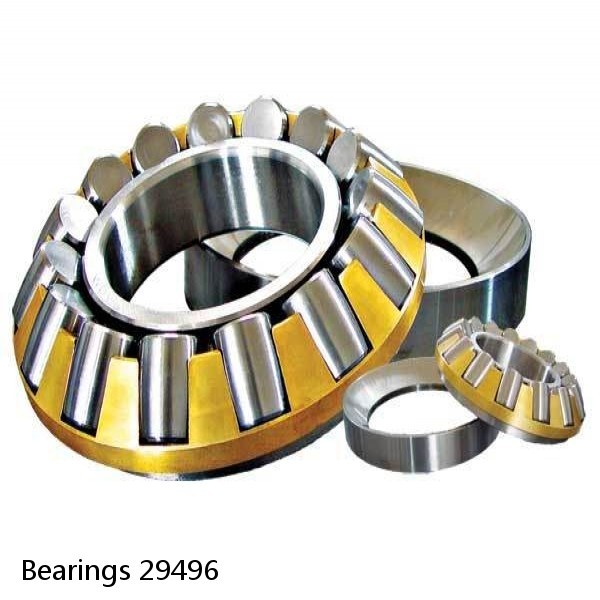 Bearings 29496
Bearings 29496 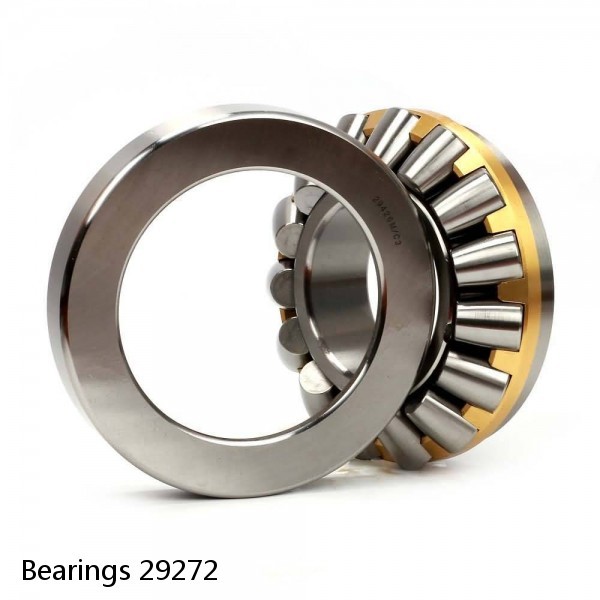 Bearings 29272
Bearings 29272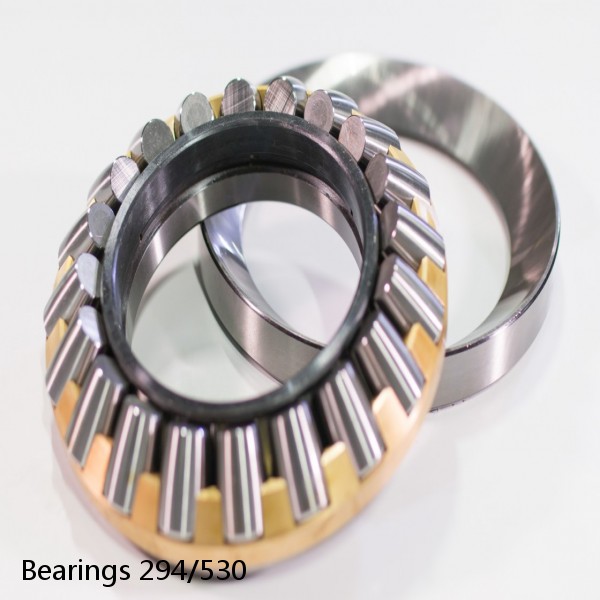 Bearings 294/530
Bearings 294/530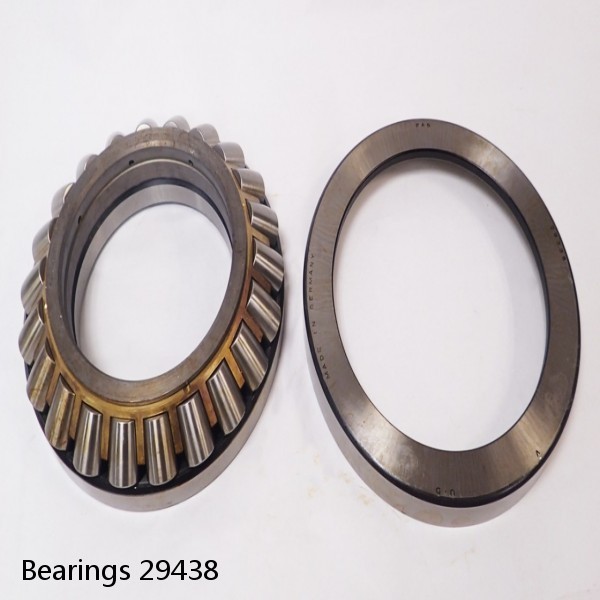 Bearings 29438
Bearings 29438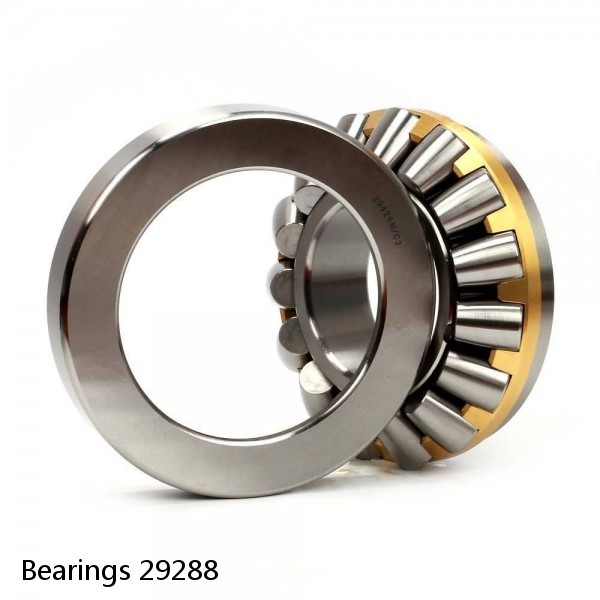 Bearings 29288
Bearings 29288